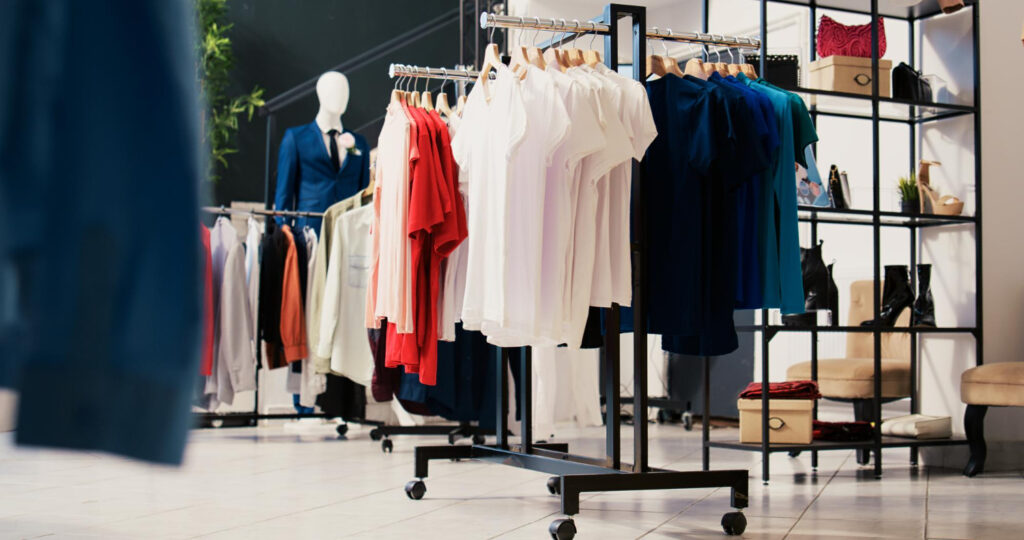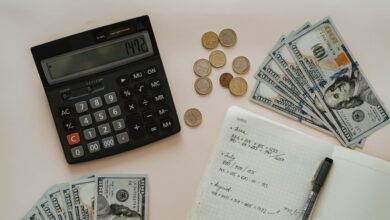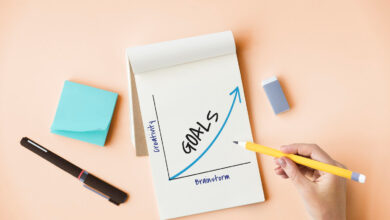15 Essential Questions To Ask Yourself Before Buying Anything

Look, I get it. You’re scrolling through Amazon at 11 PM, and suddenly that air fryer looks like the missing piece of your life. Or maybe you’re at Target for toothpaste and somehow end up at the checkout with three throw pillows and a candle you didn’t know you needed.
We’ve all been there, right?
But here’s the thing: your wallet can only take so many hits before it starts crying for help. And if you’re serious about getting your finances together (which I’m guessing you are since you’re reading this), you need to pump the brakes before every purchase.
I’m not saying you should live like a hermit and never buy anything fun. That’s miserable and unsustainable. What I am saying is that asking yourself a few smart questions before you swipe that card can save you thousands of dollars every year. Yeah, thousands.
So let’s talk about the questions that’ll help you become a smarter shopper without sucking all the joy out of life.
Why Should You Question Your Purchases?
Before we get into the actual questions, let’s address the elephant in the room. Why bother with all this self-interrogation? Can’t you just buy what you want and move on with your life?
Well, sure. If you’ve got unlimited money and zero financial goals, go wild. But for the rest of us living in reality, impulse buying is basically financial self-sabotage.
Here’s what happens when you don’t question your purchases: you end up with a closet full of clothes you never wear, a garage packed with equipment you used once, and a credit card balance that keeps you up at night. Sound familiar?
The average person makes countless buying decisions every single day, and most of them happen on autopilot. Your brain sees something shiny, releases some feel-good chemicals, and boom, you’re $50 poorer.
But when you pause and actually think about what you’re doing, something magical happens. You realize that half the stuff you were about to buy doesn’t actually matter to you.
You start seeing through marketing tactics. You begin spending money on things that genuinely improve your life instead of just cluttering it up.
Plus, let’s be real: there’s something incredibly satisfying about watching your savings account grow instead of watching your stuff pile up.
15 Essential Questions To Ask Yourself Before Buying Anything

Alright, let’s get into the good stuff. These are the questions that have saved me (and my clients) from countless regrettable purchases. Bookmark this page, screenshot it, tattoo it on your arm if you have to. Whatever helps you remember to use these before you buy.
1. Is It A Need Or A Want?
This is the granddaddy of all shopping questions, and honestly, it solves about 80% of your spending problems if you answer it honestly.
Needs are things like food, shelter, basic clothing, and medication. Wants are pretty much everything else. That designer handbag? Want. The third pair of running shoes when you already have two perfectly good pairs? Want. The fancy coffee maker when you’ve got a working one at home? You guessed it, want.
Now, I’m not saying wants are bad or that you should never buy them. Life would be pretty boring if we only bought necessities. But you need to be honest with yourself about which category your potential purchase falls into.
The tricky part is that marketers are really good at making wants feel like needs. They’ll convince you that you need the latest smartphone to stay connected, or that you need those expensive vitamins to be healthy, or that you need that subscription service to be productive.
Don’t fall for it. Take a step back and ask yourself: what would actually happen if I didn’t buy this? If the answer is “nothing much,” it’s probably a want.
2. Can I Borrow It?
This question is a total game-changer for items you’ll only use occasionally.
Need a pressure washer to clean your driveway once a year? Ask your neighbor if you can borrow theirs. Want to try out camping before investing in all the gear? See if a friend will lend you their equipment for a weekend.
I know some people feel weird about borrowing stuff, but here’s the thing: most people are actually happy to lend things they’re not using. It makes them feel helpful, and it strengthens community bonds. Plus, you can always return the favor by lending something of yours later.
Obviously, this doesn’t work for everything. Don’t try to borrow someone’s toothbrush or underwear (please). But for tools, equipment, books, and even some clothing items for special occasions, borrowing is a smart move.
Just make sure you take good care of whatever you borrow and return it promptly. Nobody wants to lend stuff to that person who returns things broken or never gives them back at all.
3. Can I Barter For It?
Okay, this one might sound old-school, but bartering is making a serious comeback, and for good reason.
Let’s say you need your lawn mowed but you’re short on cash. Maybe your neighbor needs help with their taxes, and you’re pretty good with numbers. Boom, you’ve got yourself a barter situation.
The beauty of bartering is that everyone wins. You get what you need without spending money, and the other person gets something valuable without spending money either.
I’ve seen people trade everything from babysitting services for home repairs to graphic design work for dental cleanings. If you’ve got a skill or service someone else needs, you’ve got bartering power.
The key is to make sure the exchange feels fair to both parties. You don’t want to trade an hour of your time for something that took them five hours to do. Have an honest conversation about the value each person is bringing to the table.
4. Does It Have To Be Brand New?
Let me tell you something that might blow your mind: some of the wealthiest people I know buy used stuff all the time.
There’s this weird stigma around buying secondhand, like it means you’re broke or something. But that’s ridiculous. Buying used is actually one of the smartest financial moves you can make.
Cars lose about 20% of their value the moment you drive them off the lot. Furniture, electronics, tools, books, clothes, you name it, most things lose value fast once they’re used. Which means you can get them for way cheaper if you’re willing to buy them secondhand.
Now, I’m not saying you should buy used underwear or used mattresses (health and hygiene matter, people). But for most other things? Used is totally fine.
Check out Facebook Marketplace, Craigslist, thrift stores, or consignment shops. You’ll be amazed at the quality stuff people are selling for a fraction of the retail price. I’ve furnished entire rooms with secondhand finds that look brand new.
The only time you really need to buy new is when safety is a concern (like car seats for kids) or when the used version is so worn out that it won’t last long anyway.
5. Am I Fine Without It?
This question cuts through so much shopping nonsense, it’s not even funny.
We’ve been conditioned to think we need all sorts of things that our grandparents lived perfectly happy lives without. Fancy coffee makers, smart home devices, subscription boxes, meal kits, you get the idea.
Before you buy something, imagine your life without it. Really picture it. How different would your daily routine be? Would you actually be less happy or comfortable?
Most of the time, the answer is that you’d be totally fine. You don’t need a bread maker when you can buy bread for two bucks. You don’t need a fancy juicer when you can eat whole fruits and vegetables. You don’t need another streaming service when you already have three you barely watch.
I’m not trying to be a fun-killer here. If something genuinely improves your quality of life and you can afford it, go for it. But be honest about whether it’s actually going to make a difference or if you’re just convincing yourself it will.
6. Can I Pay Cash For It?
If you can’t afford to pay cash for something (and I mean actual cash or debit, not credit), you probably can’t afford it. Period.
Credit cards are convenient, sure. And they’ve got rewards and purchase protection and all that jazz. But they’re also incredibly dangerous for people who struggle with impulse buying.
When you pay with plastic, your brain doesn’t register the pain of spending money the same way it does with cash. It’s too abstract, too disconnected from reality. That’s why people spend way more when using cards versus cash.
Try this experiment: next time you go shopping, bring only cash. No cards, no backup payment methods. Just the amount of money you budgeted for that trip. Watch how much more careful you become with your purchases.
Suddenly, you’re comparing prices. You’re putting things back. You’re thinking twice about whether you really need that item. It’s like magic, except it’s just basic psychology.
The only exceptions to this rule are major purchases that you’ve saved for and planned (like a house or car), or emergencies that you genuinely can’t avoid. Everything else? If you can’t pay cash, walk away.
7. Is It In My Budget?
Speaking of budgets, let’s talk about why they’re not optional if you want to get your finances under control.
A budget isn’t about restricting yourself or living miserably. It’s about telling your money where to go instead of wondering where it went. Big difference.
If you’ve taken the time to create a realistic budget (and if you haven’t, what are you waiting for?), then you already know how much you can spend in different categories each month. Groceries, entertainment, clothing, personal care, all of it.
So when you’re about to buy something, check your budget. Have you already spent your allocated amount for that category this month? If yes, then you need to wait until next month or adjust something else to make room for it.
This sounds restrictive, but it’s actually freeing. You don’t have to feel guilty about purchases that fit within your budget. And you don’t have to wonder if you’re overspending because you already know the answer.
The problem is that most people either don’t have a budget or they have one they completely ignore. Don’t be that person. Your budget is only useful if you actually follow it.
8. Do I Need It Urgently?
Here’s a trick that has saved me probably thousands of dollars over the years: the 30-day rule.
When you see something you want to buy (that’s not an actual necessity), write it down and wait 30 days. If you still want it after a month, and it fits in your budget, go ahead and buy it.
You know what happens most of the time? You completely forget about it. Or you realize you don’t actually want it anymore. The initial excitement wears off, and you see the item for what it really is: just another thing.
This works because most impulse purchases are driven by emotion, not logic. You see something, you get excited, and your brain starts generating all these reasons why you need it right now. But emotions fade, and when they do, you’re left with a clearer perspective.
Obviously, some things are genuinely urgent. If your only pair of work shoes falls apart, you need new ones now. If your refrigerator dies, you can’t wait 30 days. But those situations are rarer than you think.
For everything else, give yourself time to think about it. You’ll be shocked at how many purchases you avoid simply by not acting on impulse.
9. Why Do I Want To Purchase This?
This question requires some serious self-reflection, but it’s worth it.
Why do you actually want this thing? And I mean the real reason, not the surface-level justification you tell yourself.
Are you buying new clothes because your current ones are worn out, or because you’re feeling insecure about your appearance? Are you upgrading your phone because yours is broken, or because you want to impress people? Are you buying that course because you’ll actually use it, or because it makes you feel productive without doing the work?
Sometimes we shop to fill emotional voids. We’re bored, stressed, sad, or lonely, so we buy stuff to feel better. It works for about five minutes, and then we’re back where we started, except now we’re also poorer.
If you can identify the real reason behind your purchase, you can address the actual problem instead of just throwing money at it. Feeling stressed? Try exercise or meditation instead of retail therapy.
Feeling insecure? Work on self-acceptance instead of buying a new wardrobe. Feeling bored? Find a hobby that doesn’t revolve around spending money.
This isn’t about judging yourself harshly. It’s about being honest so you can make better decisions.
10. How Much Work Did I Have To Put In To Be Able To Afford This?
This perspective shift is absolutely brutal, but it works.
Let’s say you make $20 an hour after taxes. That $60 shirt you’re eyeing? That’s three hours of your life. Three hours of commuting, dealing with your boss, sitting in meetings, whatever your job involves.
Is that shirt worth three hours of your time and energy? Maybe it is. But maybe when you think about it that way, you realize it’s not.
This gets even more intense with bigger purchases. A $30,000 car when you make $50,000 a year? That’s more than half a year of your working life, before you even account for insurance, gas, and maintenance.
I’m not saying this to depress you. I’m saying it because it’s easy to disconnect our purchases from the work required to afford them. Money feels abstract until you translate it back into hours of your life.
Try this calculation with your next few purchases and see how it changes your perspective. You might find yourself being way more selective about what’s actually worth your time.
11. Does This Purchase Support My Goals?
If you don’t have clear financial goals, stop reading right now and go make some. Seriously, I’ll wait.
Okay, now that you’ve got goals (you do, right?), every purchase should be evaluated against them. Does this purchase move you closer to your goals or further away?
Let’s say your goal is to save $10,000 for an emergency fund. Every dollar you spend on non-essentials is a dollar that’s not going toward that goal. Is this purchase worth delaying your emergency fund?
Or maybe your goal is to start a business. Does this purchase help with that? If you’re buying a laptop that’ll let you work more efficiently, that’s supporting your goal. If you’re buying another video game, that’s not.
This doesn’t mean every purchase has to directly contribute to your goals. You’re allowed to spend money on things that bring you joy or relaxation. But you should be aware of the trade-offs you’re making.
The purchases that feel best are the ones that align with your values and goals. Everything else tends to create this low-level guilt that takes away from the enjoyment anyway.
12. Do I Have A Similar Item?
Let’s talk about redundancy for a second.
How many times have you bought something only to get home and realize you already had something similar? Or maybe you knew you had something similar, but you convinced yourself this new version was somehow better or different?
I see this all the time with clothes. People buy a new black shirt when they already have five black shirts at home. Or they buy another pair of jeans in a slightly different shade when their closet is already full of jeans.
Same thing with kitchen gadgets, tools, electronics, you name it. We accumulate multiples of things we don’t need multiples of.
Before you buy something, do a quick mental inventory. Do you already own something that serves the same purpose? If yes, do you really need another one, or are you just bored with what you have?
Sometimes having multiples makes sense. You might want backup chargers or extra towels or multiple pairs of work shoes. But most of the time, it’s just clutter disguised as shopping.
13. How Long Will This Purchase Last Me?
The true cost of something isn’t just the price tag. It’s the price divided by how long you’ll use it.
A $200 pair of quality boots that lasts five years costs you $40 per year. A $50 pair of cheap boots that falls apart after six months costs you $100 per year. The expensive boots are actually cheaper in the long run.
This is called cost-per-use, and it’s one of the most important concepts in smart shopping. Always consider durability and longevity when evaluating whether something is worth the money.
That said, don’t fall into the trap of justifying every expensive purchase by telling yourself it’ll last forever. Sometimes cheap is fine, especially for things you won’t use often or that you’re just trying out.
The key is to match the quality and price to how much you’ll actually use the item. Buying expensive running shoes when you run every day? Smart. Buying expensive running shoes when you might jog twice a month? Not so smart.
Also consider whether something is trendy versus timeless. Trendy items have a built-in expiration date because you’ll get sick of them or they’ll go out of style. Timeless items can last years without feeling dated.
14. Can I Get This For A Better Price Elsewhere?
With the internet at your fingertips, there’s literally no excuse for not comparison shopping.
Before you buy anything that costs more than, say, $20, take five minutes to check if you can get it cheaper somewhere else. Check Amazon, check competitor stores, check coupon sites, check if there’s a generic version that’s just as good.
You’d be amazed at the price differences for identical items. I’ve seen the same product priced anywhere from $30 to $80 depending on where you shop. That’s a huge difference for five minutes of research.
Also, don’t be afraid to negotiate, especially for big-ticket items. Many stores will price-match competitors or give you a discount if you ask. The worst they can say is no, and you’re no worse off than before.
Another tip: check if there are any cashback apps or credit card rewards you can use to effectively lower the price. I use cashback apps for almost everything, and it adds up to hundreds of dollars a year in savings.
The only caveat here is to make sure you’re comparing apples to apples. A cheaper version might be lower quality or missing features you actually need. But often, you’re paying extra for nothing more than brand name or convenience.
15. Am I Buying This Because Of A Promo?
Sales and promotions are designed to make you spend money, not save it. Let that sink in for a second.
Sure, you’re getting a discount compared to the regular price. But if you weren’t planning to buy the item in the first place, you’re not saving money, you’re spending money you wouldn’t have spent otherwise.
This is especially dangerous with those “limited time” offers that create artificial urgency. Marketers know that if they can get you to act quickly, you won’t think through the purchase rationally.
Black Friday is the perfect example. People camp out and fight crowds to get deals on stuff they don’t need and wouldn’t have bought at full price. They think they’re being smart shoppers, but really they’re just falling for marketing tactics.
Here’s a better approach: make a list of things you actually need or have been planning to buy. Then, and only then, look for sales and promotions on those specific items. Don’t browse sales looking for things to buy.
Also, do the math on whether the sale is actually a good deal. Sometimes stores inflate the “regular price” to make the discount look bigger than it is. Or they offer a percentage off but still charge more than competitors.
Final Thoughts
Look, I’m not here to tell you that you should never buy anything fun or that you need to live like a monk to be financially responsible. That’s not realistic, and it’s not sustainable.
What I am saying is that every purchase is a choice, and those choices add up to either financial security or financial stress. You get to decide which one you want.
The questions we’ve covered aren’t about deprivation. They’re about intention. They’re about making sure your spending aligns with your values and goals instead of just being a reaction to emotions or marketing.
When I started asking myself these questions years ago, it felt annoying at first. I didn’t want to slow down and think about every purchase. I just wanted to buy what I wanted when I wanted it.
But you know what happened? I started feeling so much better about my finances. I stopped having that low-level anxiety about money. I stopped feeling guilty about purchases because I knew they were intentional choices, not impulse mistakes.
Plus, my savings account actually started growing instead of staying stuck at zero. And that feeling of watching your net worth increase? Way better than the temporary high of buying random stuff.
So here’s my challenge to you: pick three of these questions and commit to asking them before every non-essential purchase for the next month. Just one month. See what happens.
I’m willing to bet you’ll be shocked at how much money you save and how little you actually miss the things you didn’t buy. And once you see those results, you’ll be hooked on smart shopping for life.
Your future self (and your bank account) will thank you. 🙂








